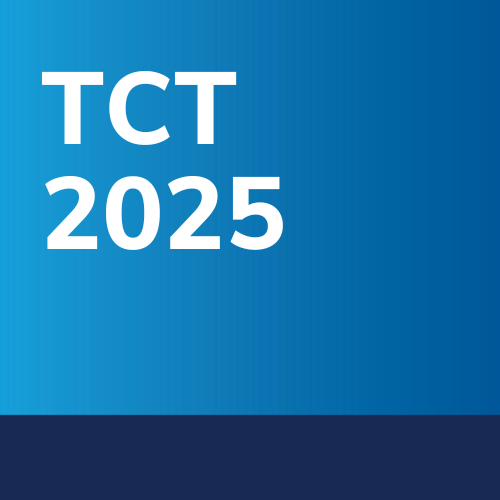Among low-risk patients with severe, symptomatic aortic stenosis who underwent either TAVR or surgery, the incidence of death, stroke or rehospitalization at seven years was similar across both groups, based on the newest findings from the PARTNER 3 trial. The findings, presented at TCT 2025 and simultaneously published in NEJM, also appeared to show similar rates of valve durability and patient-reported outcomes.
A total of 1,000 patients were enrolled in the trial and were randomly assigned to undergo transfemoral TAVR or surgery. The first primary endpoint was a nonhierarchical composite of death, stroke or rehospitalization related to the procedure, the valve or heart failure, while the second primary endpoint involved a hierarchical composite of death, stroke and the number of rehospitalization days related to the procedure, the valve or heart failure. Clinical, echocardiographic, valve-durability and health-status end points were also assessed. The current findings assess long-term outcomes through seven years.
In the analysis of the first primary endpoint, the Kaplan–Meier estimate of the incidence of an endpoint event was 34.6% with TAVR and 37.2% with surgery, according to Martin B. Leon, MD, FACC; Michael J. Mack, MD, MACC, et al. The win ratio for the second primary endpoint was 1.04. Broken down by event, the Kaplan–Meier estimates for the incidence of death was 19.5% and 16.8% in the in the TAVR and surgery groups, respectively, while stroke was 8.5% and 8.1% and rehospitalization was 20.6% and 23.5%. The percentage of bioprosthetic valves that failed was 6.9% in the TAVR group and 7.3% in the surgery group.
“A consistent finding in PARTNER 3 follow-up analyses has been an attenuation of the between-group difference in primary endpoint events, which favors TAVR over surgery in the first year with no between-group differences apparent during longer follow-up,” write the authors.
Clinical Topics:
Invasive Cardiovascular Angiography and Intervention, Valvular Heart Disease, Interventions and Imaging, Interventions and Structural Heart Disease, Angiography, Nuclear Imaging
Keywords:
Transcatheter Cardiovascular Therapeutics, TCT25, Angiography, Heart Valve Diseases

